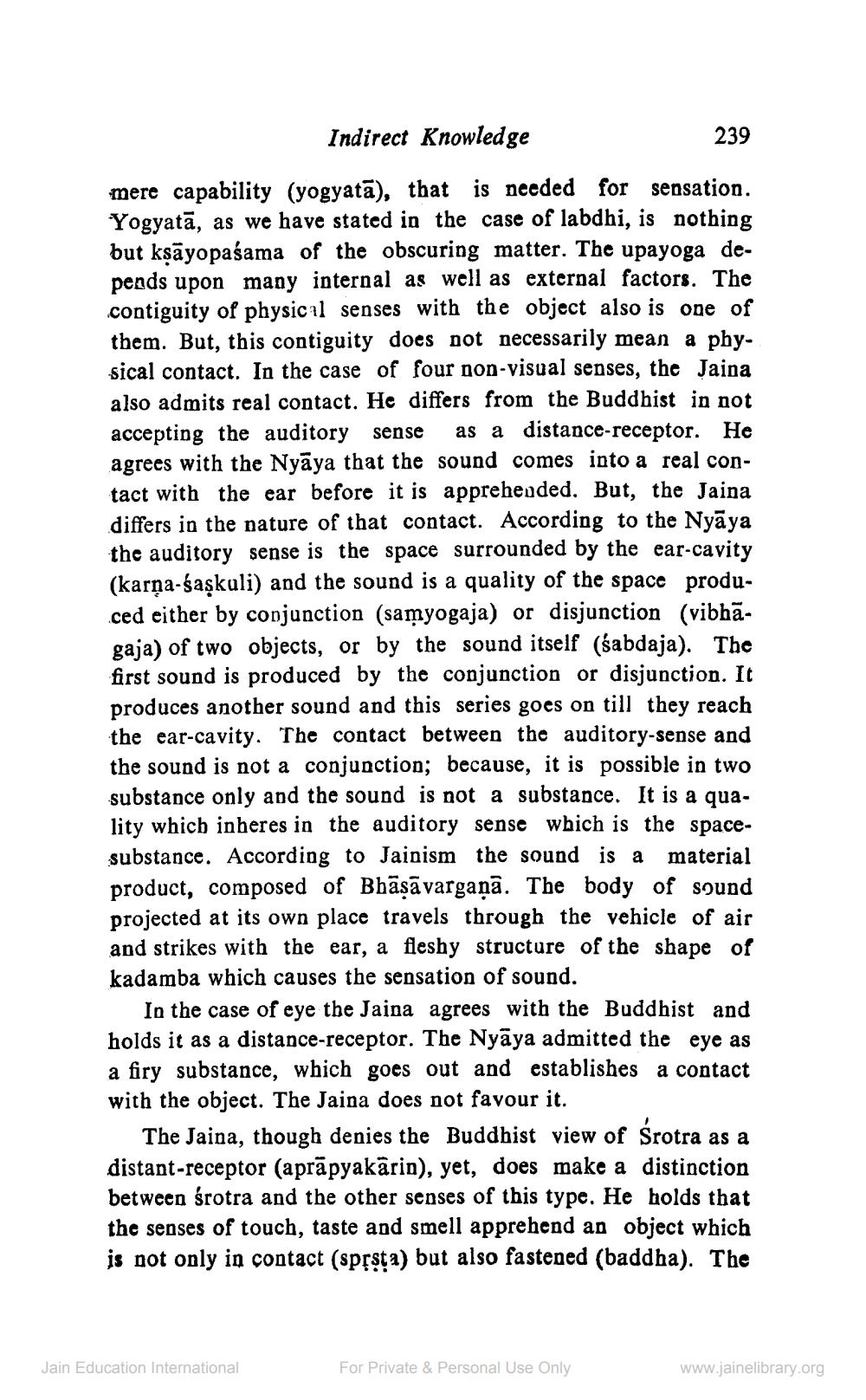________________
Indirect Knowledge
mere capability (yogyata), that is needed for sensation. Yogyata, as we have stated in the case of labdhi, is nothing but kṣayopaśama of the obscuring matter. The upayoga depends upon many internal as well as external factors. The contiguity of physical senses with the object also is one of them. But, this contiguity does not necessarily mean a physical contact. In the case of four non-visual senses, the Jaina also admits real contact. He differs from the Buddhist in not accepting the auditory sense as a distance-receptor. He agrees with the Nyaya that the sound comes into a real contact with the ear before it is apprehended. But, the Jaina differs in the nature of that contact. According to the Nyaya the auditory sense is the space surrounded by the ear-cavity (karṇa-śaşkuli) and the sound is a quality of the space produced either by conjunction (samyogaja) or disjunction (vibhāgaja) of two objects, or by the sound itself (sabdaja). The first sound is produced by the conjunction or disjunction. It produces another sound and this series goes on till they reach the ear-cavity. The contact between the auditory-sense and the sound is not a conjunction; because, it is possible in two substance only and the sound is not a substance. It is a quality which inheres in the auditory sense which is the spacesubstance. According to Jainism the sound is a material product, composed of Bhaṣavargana. The body of sound projected at its own place travels through the vehicle of air and strikes with the ear, a fleshy structure of the shape of kadamba which causes the sensation of sound.
In the case of eye the Jaina agrees with the Buddhist and holds it as a distance-receptor. The Nyaya admitted the eye as a firy substance, which goes out and establishes a contact with the object. The Jaina does not favour it.
239
The Jaina, though denies the Buddhist view of Śrotra as a distant-receptor (aprāpyakarin), yet, does make a distinction between śrotra and the other senses of this type. He holds that the senses of touch, taste and smell apprehend an object which is not only in contact (spṛṣṭa) but also fastened (baddha). The
Jain Education International
For Private & Personal Use Only
www.jainelibrary.org




